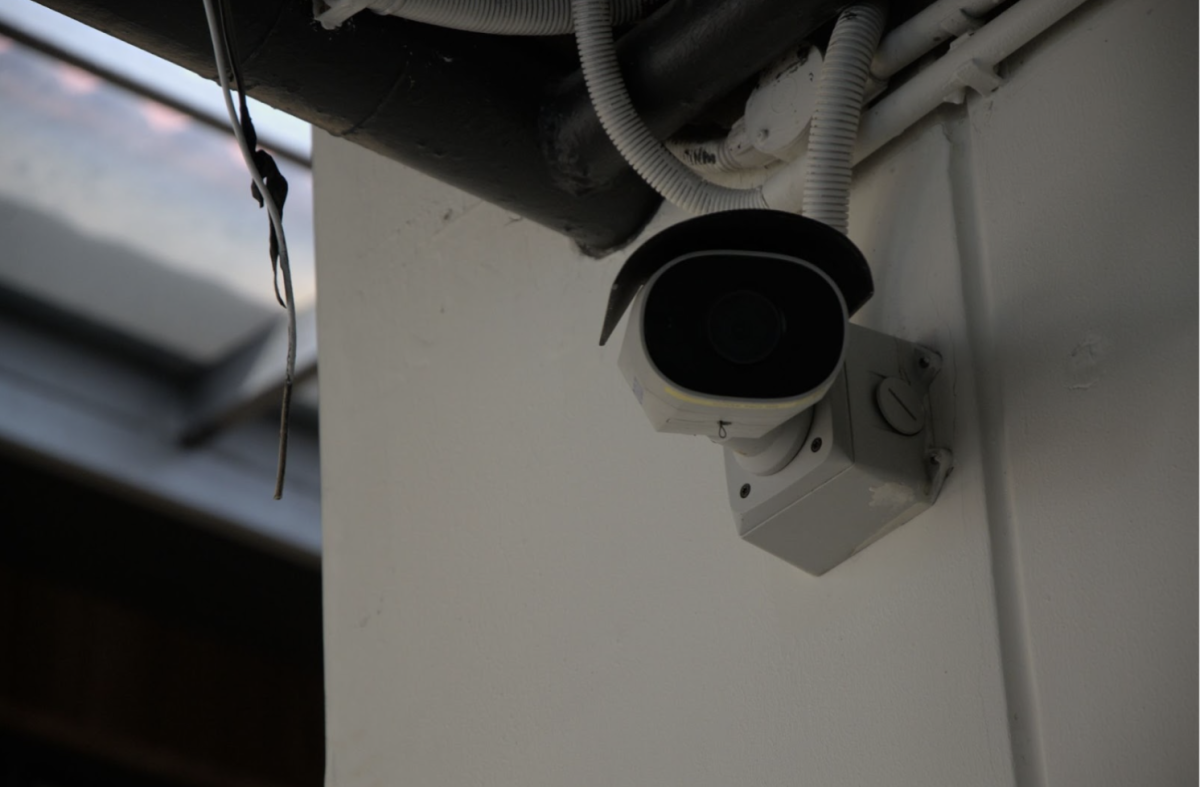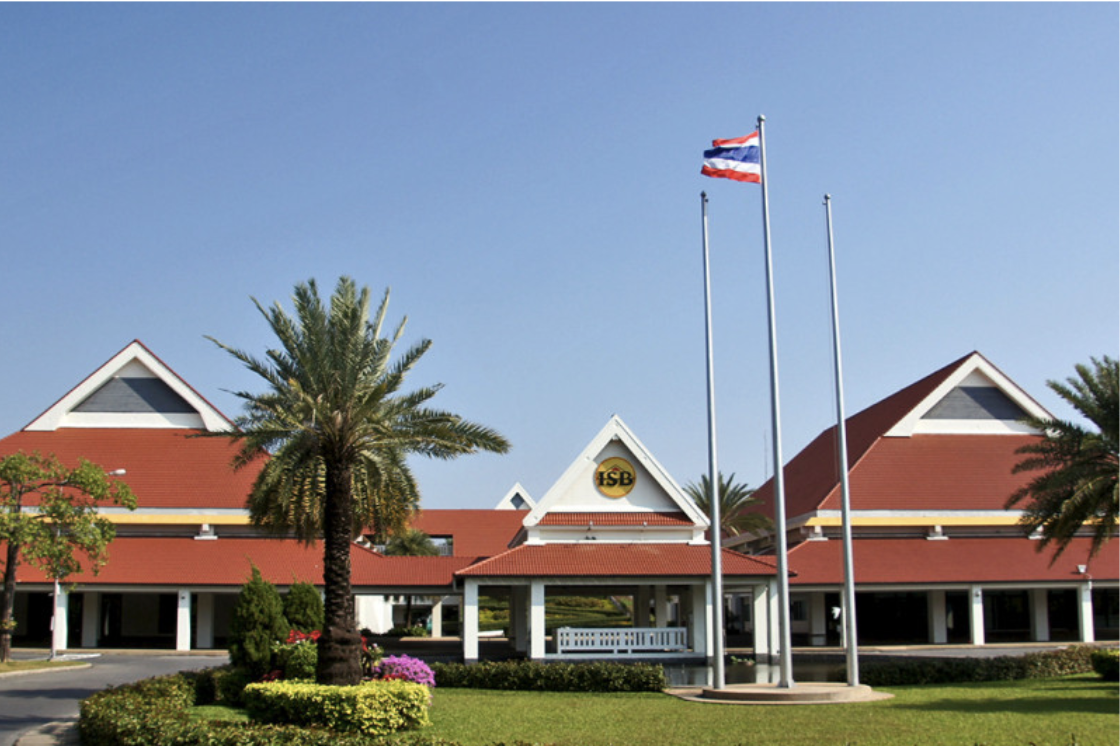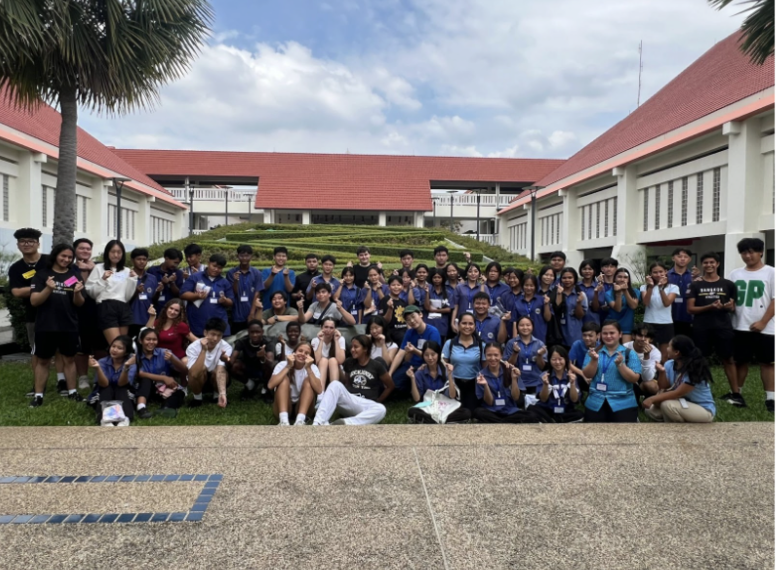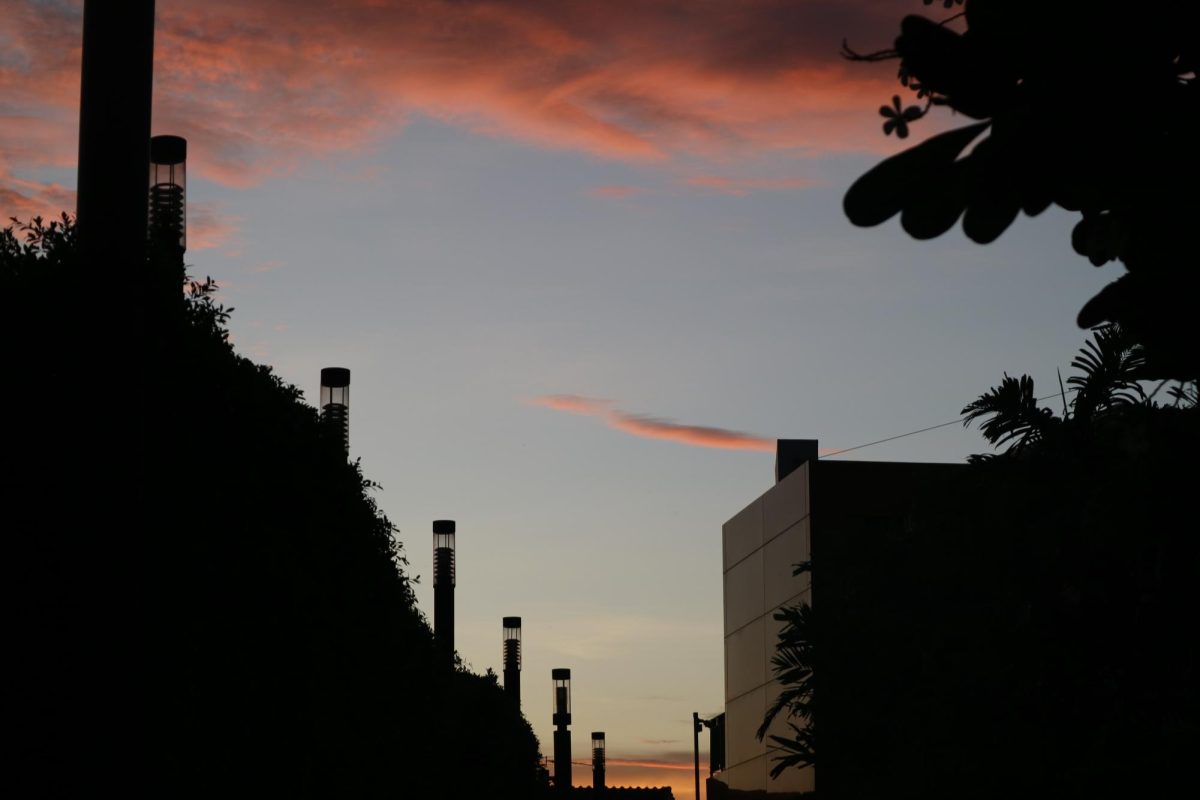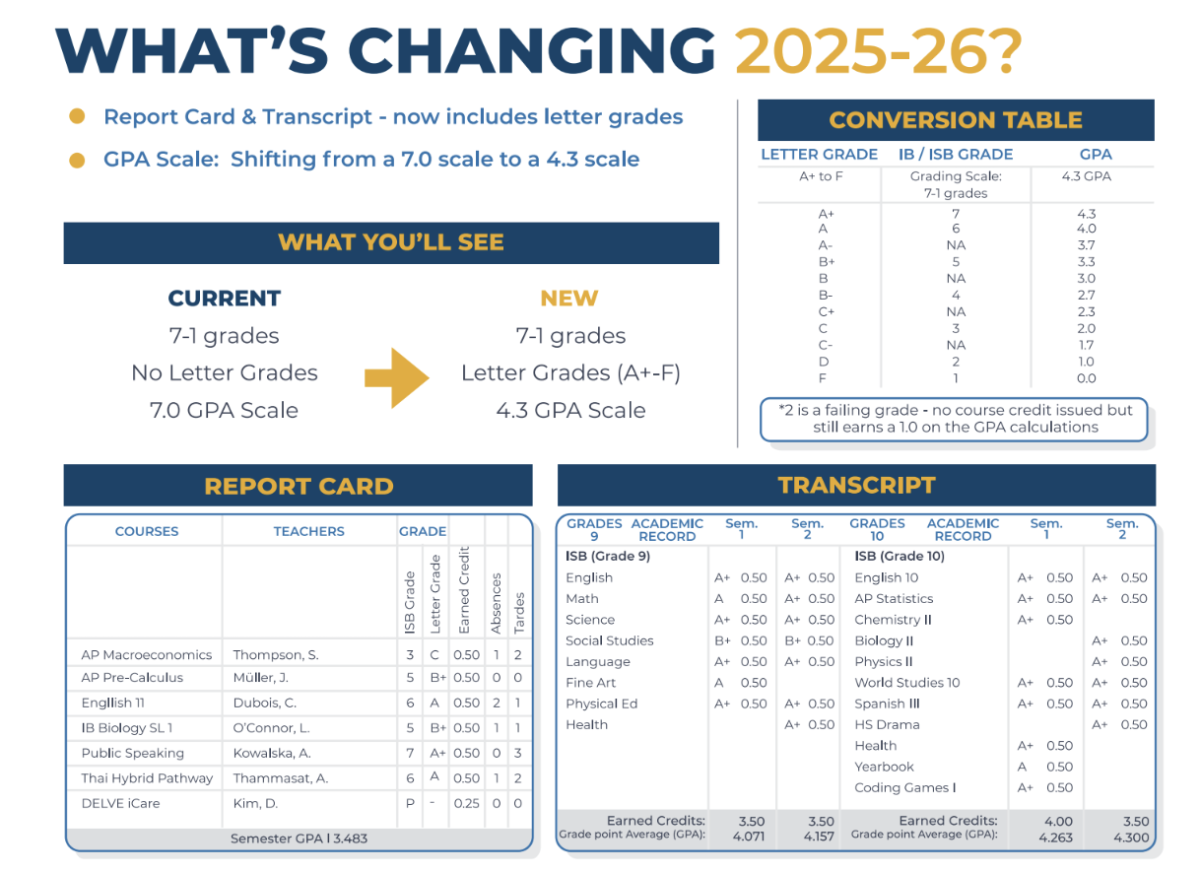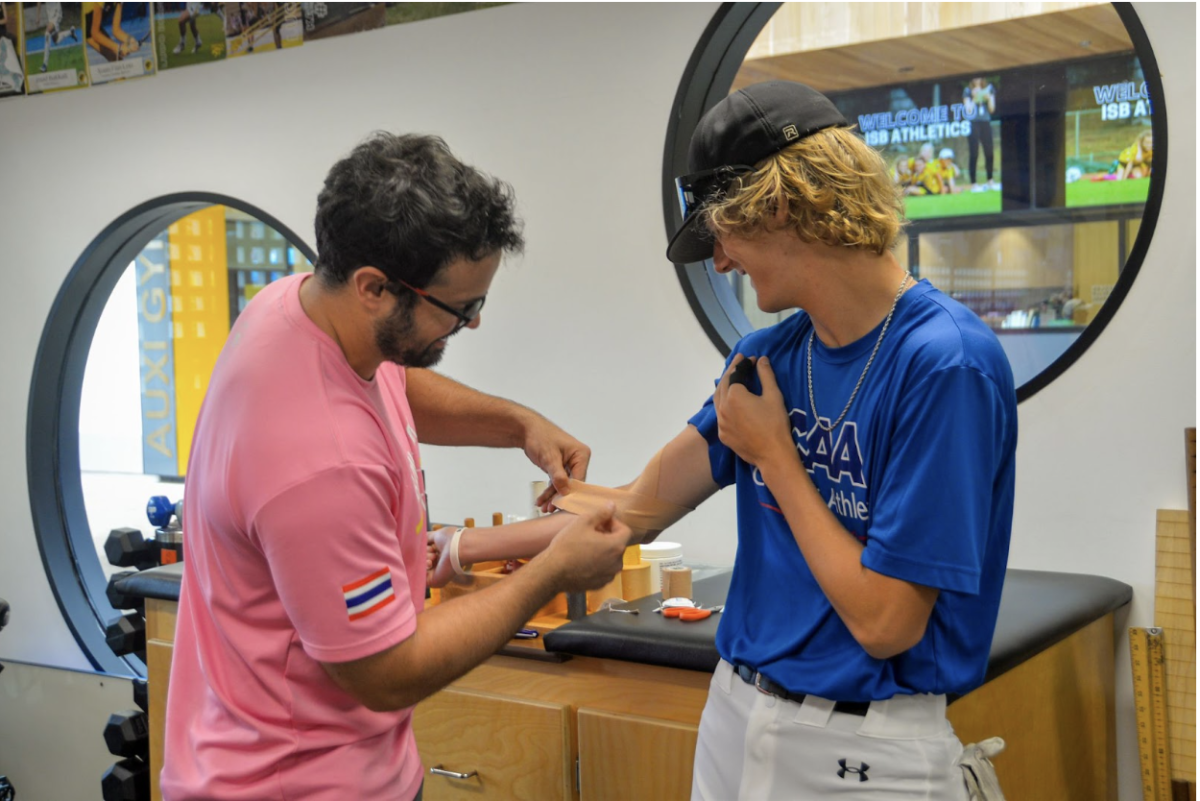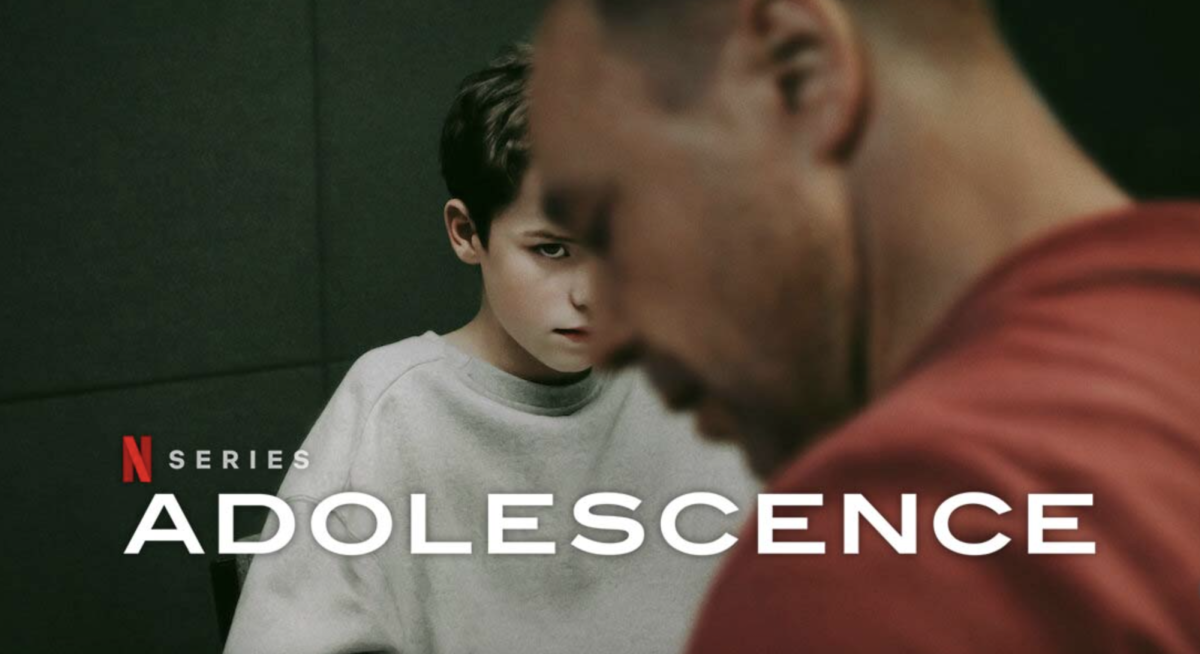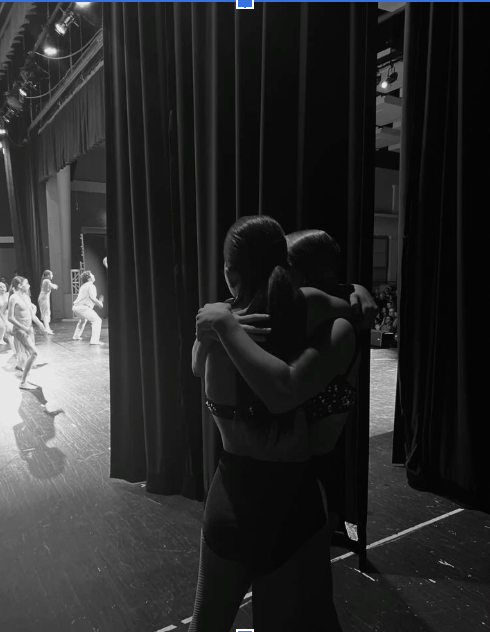Some students have reservations about using their school-provided MacBook for personal use, whether for watching YouTube videos, playing games, or even logging on to their other accounts. That’s paranoia: the fear of someone or something watching you. Many students believe that the school is constantly monitoring their activities both online and in real life. And their beliefs are largely true.
In terms of physical surveillance systems, the school is almost shockingly well-equipped. With more than 300 cameras installed throughout the ISB campus, nearly every square inch of it is being monitored by cameras. Observant students might notice large, white cameras as they walk down the hallway to classes or en route to The Grind. Fortunately for students, though, classrooms do not have cameras or microphones installed. Yet. The practice rooms in the CCT building are the exceptions to this.
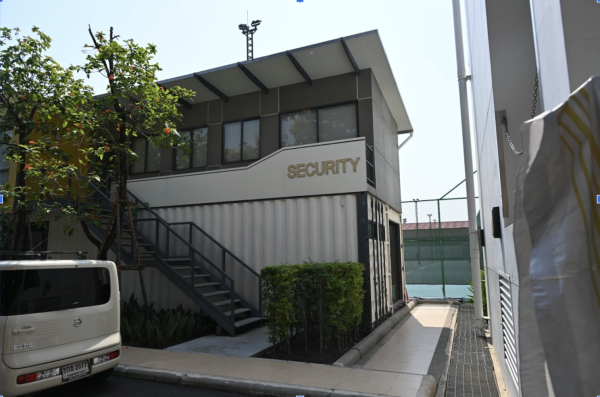
“The practice rooms used to be a spot where we had a lot of problems because we had students hiding in there and making poor decisions,” says ISB Dean of Students Andy Vaughan. The school believes that the massive amount of physical surveillance is justified in the name of both safety and loss prevention. If a student loses a personal belonging such as a wallet, ID, or MacBook, the school can review the footage to track where the student has gone and find the missing item.
The surveillance can also serve to hold wayward students accountable. There was an incident last semester during which a group of rowdy students trashed a breakout room in the Learning Hub. The teachers who were monitoring the hub could not identify the students by name but remembered their faces. While there are no cameras inside the hub, the ones in the surrounding hallways recorded which students had entered the space during the time in question. Eleanor Brock, head of High School Student Services, says that the footage of who had entered the hub helped the school identify the perpetrators. “I asked the teacher, ‘Were these the ones who you saw?’” That verification allowed school administration to deal with the offending students.
School officials say they might well expand their surveillance further into classrooms and private learning environments because, they say, safety and transparency trump privacy at ISB. “There’s no expectation of privacy here at ISB as far as where you are, when you are, who you’re with,” says Mark Hevland, ISB’s director of risk management, who explains that, as a private institution, the school can make whatever rules it deems fit.
As for digital surveillance, ISB has the ability to install software remotely to track where students go on their school-provided MacBooks. This means any kind of software, not just educational apps such as Exam.net but also any that have the capacity to surveil students. It is unclear whether the school plans to execute that option, but it is clear from interviews with school officials that there is no emphasis on student privacy on the school campus or with school equipment.
“I don’t believe it intrudes on your privacy because ultimately the computer itself is ISB’s,” says Christopher Bell, ISB librarian and technology coordinator. The justification for this is that it helps protect students and staff by “keeping threats at bay” while also “protecting the information and data of everybody inside our community.”

Additionally, as another layer of security, the school’s WiFi bans a number of websites. These include obvious ones that peddle or serve as a hub for pornography, gambling, or other illegal activities. But these also include student favorites such as Discord and NordVPN. School officials banned Discord several years ago because the school couldn’t properly monitor or have any way to monitor what students did on Discord. So after an incident of cyberbullying and as a result of a parent request, the school blocked access to the social media app while students were using the school’s WiFi. Notably, thought, students can still access via school WiFi the major online gambling site “stake.com.”
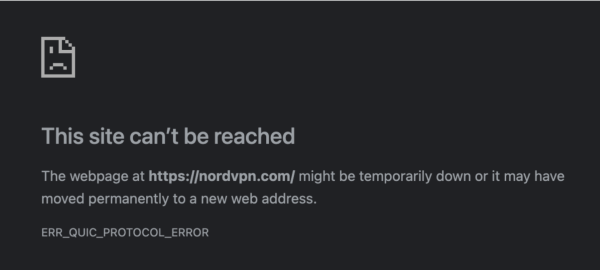
NordVPN is arguably an odd site to ban, as it could aid in the school’s directive to protect student and staff information through its high-level encryption technology. It is able to generate military-grade encryption onto your IP, leaving no room for malicious actors to steal and sell data. Ironically, that ability to secure data from others is the reason why ISB has banned it. “It makes people hide stuff, which inherently in my mind is worse,” says Mr. Bell.
Students interviewed for this article seem relatively unconcerned about physical surveillance. “I don’t really care too much,” says sophomore Abeer Waikar. “But for like monitoring, I think it’s fine.” But others express concern about the school’s lackluster digital security measures with regard to PowerSchool and other such applications. “Last year they started cybersecurity class, and the school’s security with PowerSchool was actually really terrible,” says sophomore Chinnapong “Tim” Kulmanochwong. “People could hack into it easily,” he adds.

